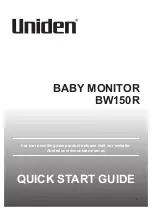
3
• When not using the Blood Pressure Monitor for extended lengths of time,
remove the batteries to avoid potential battery leakage and damage to the
monitor.
• When replacing the batteries, ensure all the batteries are replaced simulta-
neously to avoid battery damage and potential damage to the monitor.
Microlife USA does not recommend using rechargeable batteries.
• To avoid inaccurate measurements and to lessen any discomfort from Cuff
pressure, ensure the Cuff is placed correctly on the limb and fits correctly
when snug (not tight), as indicated by markings with the Cuff.
• Consult your physician in cases of frequent irregular heartbeat detections.
DO NOT:
Drop this device or expose it to strong vibrations; sensitive components may
be affected resulting in inaccuracies and/or operational issues.
Use the Blood Pressure Monitor outside of its specified operation tempera-
ture and humidity rating, or if stored outside of its specified storage temper-
ature and humidity rating. Avoid storage in direct sunlight.
Use this device in a moving vehicle; inaccurate measurements may result.
Use third party accessories. Only use Microlife authorized accessories, such
as cuffs or AC adapters, as those not approved for use with the device may
provide inaccurate measurements, injury, and/or damage the device.
STANDARDS:
In addition to the standards stated in the Instruction Manual:
• This medical device is compliant with medical device and non-invasive
blood pressure monitor standards IEC 60601-1, IEC 60601-1-2, IEC 60601-1-
11, and AAMI/ANSI/IEC 80601-2-30, and
• Electromagnetic standards IEC 60601—1-2 along with FCC Part 15, and
• Clinical Testing per standard ISO 81060-2:2013 was conducted on blood
pressure device using the same measurement technology.
Please note:According to international standards, your monitor should be
checked for accuracy every 2 years.
TYPE:
IP20:Protected against solid foreign particles with a diameter of more than
12.5 mm, no protection against water. Keep Dry.
Type BF Applied Part
Batteries and electronic instruments must be disposed of in accordance with
the locally applicable regulations, not with domestic waste.





































